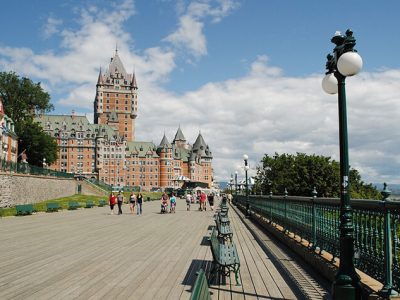For the first time, official Ottawa has publicly accused Quebec of delays in processing immigration applications, which has recently taken an unusually long time.
According to the federal government of Canada, times of processing immigration applications in Quebec has become more extended because this province has decided to reduce the number of immigrants. Currently, foreign skilled workers must first wait for Quebec to select them and then spend another two years waiting to get a permanent residence in Canada.
Several immigration lawyers have recently questioned Immigration, Refugees and Citizenship Canada (IRCC) about the delays in processing immigration applications in Quebec. The lawyers complain that processing times are unusually long for their clients.
In response, the federal government has sent them a letter mentioning the backlog caused by the decrease in the number of immigrants Quebec has agreed to welcome this year.
According to the immigration lawyers, this is the first time Ottawa publicly mentions such a reason, emphasizing the decision of Quebec to lower immigration levels and the consequences that have followed.
In 2019, as it was promised during the election campaign, the government of François Legault decided to reduce the number of immigrants to 40 thousand people, which is 20% less than in previous years.
Although this figure will increase by 2022, as Quebec is considering the possibility of a gradual return of approximately 50,000 immigrants per year, this decision causes delays in processing applications and, as a result, in the arrival of permanent residents needed by the labour markets of Quebec and Canada.
Two-Stage Immigration System
According to the agreement between the federal government and Quebec, the province has the right to select immigrants independently. Immigration applicants must meet several criteria, such as age, education, and work experience to obtain a Quebec Selection Certificate (Certificat de sélection du Québec, CSQ).
After getting a CSQ, the applicant must send it to the federal agency, which will perform a criminal record check and request a medical examination results before providing the candidate with permanent residence.
Now a foreign skilled worker needs to wait 22 months to obtain a permanent residence permit, while in February, the average processing time was 19 months. This delay adds to the time required to obtain a CSQ, as Quebec selects economic immigrants independently.
Negotiations Continue
For several months, Quebec has been actively trying to broaden its immigration powers. According to François Legault, the provincial authorities want Quebec to have more autonomy in selecting immigration candidates, in the francization of immigrants, and in holding immigration draws. They also want to make a French proficiency test mandatory for immigration applicants.
Justin Trudeau’s team has already disagreed with such conditions, while conservatives have shown openness to considering Quebec proposals.
The government of François Legault also wants to take full responsibility for assessing the economic consequences of immigration and extending the validity of work permits from one to two years.

